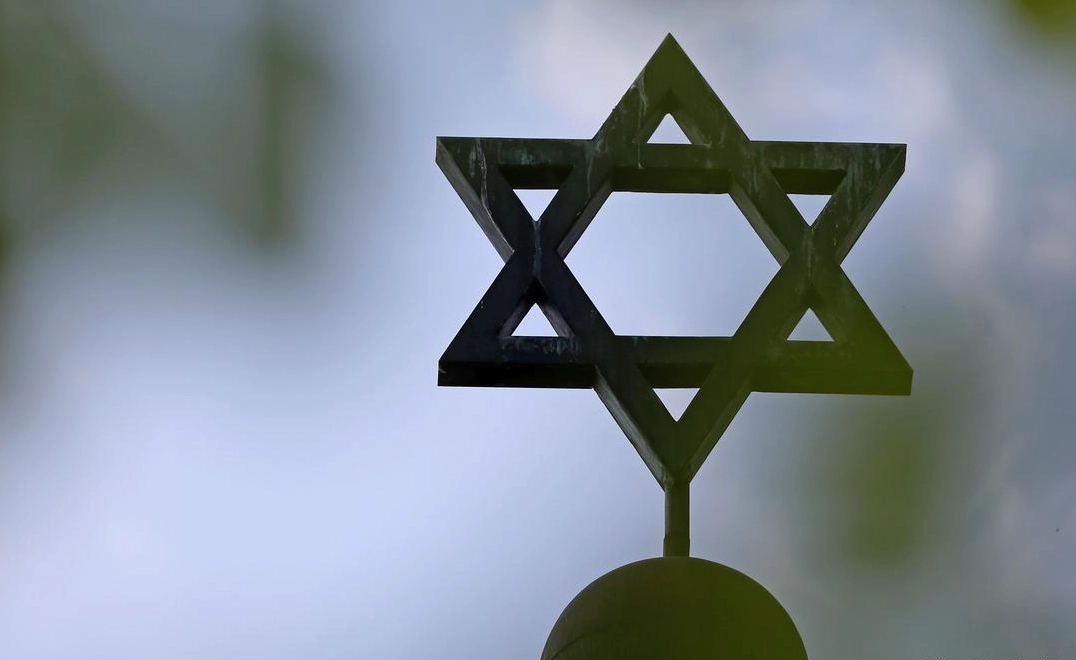The latest round of confrontations that began on October 7 between the Palestinian militias of Hamas and Israel has already left more than 24,000 Palestinians and 1,200 Israelis killed. However, its consequences are not limited to the Middle East. Jewish and Islamic communities around the world are at the mercy of rising anti-Semitism and Islamophobia, hate speeches subtly embedded in Western society.
Progressive Latin American governments have called for the defense of human rights and for a cease-fire that could help solve the grave humanitarian crisis experienced by the Palestinian people in Gaza. In the same sense, they have qualified as war crimes the indiscriminate bombings by the Israeli army in response to the Hamas terrorist attack and have denounced the occupation and the construction of new settlements in the West Bank by Israel in violation of international law.
But within these positions, anti-Semitic symbols and narratives have also been reproduced, voluntarily or involuntarily. In Argentina, a building where some Jewish families live was marked with the Star of David, just as the Nazis did on Kristallnacht (Night of Broken Glass). A similar fate befell the Israeli embassy and a synagogue in Bogotá, Colombia, which were vandalized with Nazi symbols. Also, according to the Israeli Confederation of Brazil (CONIB), complaints of anti-Semitism have increased by 961% in the country.
The Jewish community in Latin America warns about the increase in hate speech
“You can be pro-Palestinian without being anti-Semitic,” says Fernando Lottenberg, OAS commissioner for monitoring and combating anti-Semitism. For him, one of the central aspects of anti-Semitism is to blame the entire Jewish community for the actions of the State of Israel. This is reflected in attacks on synagogues and the targeting and vandalism of Jewish community property. Furthermore, he adds that “attacks on Jewish communities generally lead to attacks on the democratic system.”
“The growth of anti-Semitic discourse in Colombia is generating a feeling of insecurity in the community,” says Eli Akerman, a young Israeli-Colombian critic of the far-right Israeli government. For him, it is necessary to be cautious with the symbols used in the speeches related to the conflict in Gaza, since they can reproduce racist stereotypes that have a great social impact and endanger the Jewish community around the world.
The current situation has shown that what is happening in the Middle East affects all Jewish communities. In Dagestan (southern Russia), a mob broke into the local airport to attack passengers on a flight arriving from Tel Aviv. In that vein, Michael Rosenthal, a peace activist and student of International Relations, says: “The Jewish community in Latin America does not operate in a vacuum, attacks on Jews around the world hurt equally in all communities because we are always in constant contact”.
For him, the inversion and trivialization of the Holocaust, as well as the demonization of the Jewish community, are increasingly present in discourses concerning the conflict in Gaza, especially on social networks. In the United States, one in five young people under the age of 30 believe that the Holocaust is a myth, according to a recent survey by The Economist.
Michael, along with other young Colombian Jews who voted for the left in the last presidential elections, wrote a letter to the President of Colombia, Gustavo Petro, expressing their outrage for not directly condemning the October 7 massacre by Hamas, while recognizing and condemning the actions of the Israeli army in Gaza, as well as Israel’s policy toward the Palestinians in recent years.
Recognize the structural nature of anti-Semitism in our society
Anti-Semitism is deeply linked to the history of the “West” and has been used by the ruling elites as a scapegoat to divert attention from the problems of corruption and bad governance, reminds us Joel Klahr, a Colombian Jewish psychoanalyst. Anti-Semitism as hate speech has the particularity, both from the left and from the right, of representing the Jewish community as a group that is always on top, “allied” with the dominant power.
These aspects embedded in the collective psychology are accompanied by physical stereotypes historically assigned to the Jewish community, such as those reproduced by the popular Colombian cartoonist Matador, who in trying to develop a criticism against Israel ends up reproducing different anti-Semitic clichés, accusing them of considering themselves a superior race and demonizing them for the actions of the State of Israel.
Although anti-Semitism developed mainly on the conservative right, it must be recognized that on the left there are particularities that also reflect the existence of anti-Semitic prejudices and libel. The representation of the Jew as white, part of the financial elite, and representative of Western “imperialist” interests has been part of emancipatory discourses around the world. In his book “On the Jewish Question” Marx stated: “What is the secular foundation of Judaism? Practical necessity, selfish interest. What is the secular cult practiced by the Jew? Usury. What is his secular god? Money.
All these stereotypes are easy to dismantle. It is important to study modern history to understand, for example, that most European Jews before the Holocaust lived in humble agricultural communities (Shetl) in Eastern Europe, while others were part of the intellectual class making great contributions in all fields of knowledge. Yet, these communities were persecuted not only by Nazism and Russian Tsarism but also by Stalinism.
Progressivism’s commitment to dismantling structural racism must also involve a frontal struggle against anti-Semitism. This implies differentiating the Jewish community from the actions of an individual or an institution but also educating ourselves not to reproduce symbols that reproduce any hate speech. Recognizing that the Jewish community has been persecuted throughout its history and all over the world is indispensable in this deconstruction.
“Fight anti-Semitism as if there were no occupation and fight the occupation as if there were no anti-Semitism”
This phrase guides the work of Argentine-Israeli journalist Ezequiel Kopel, who dedicates his work to reflecting the reality of the Middle East for the Latin American public. He recognizes that, on some occasions, anti-Semitic rhetoric is present in criticism of Israel. Still, he also points out that within the pro-Israel camp, some are interested in confusing any criticism of the country with anti-Semitism: “Anti-Semites like Donald Trump and Elon Musk get a free pass because they support Israel, while anyone who criticizes Israel is labeled an anti-Semite”.
Criticizing the actions of any state is legitimate. Organizations such as Jewish Voice for Peace in the United States, Breaking the Silence, and B’tselem have denounced the policy of occupation and the systematic violation of human rights committed by Israel before and after October 7. The key to not falling into hate speech is the type of language and symbols used.
A final aspect to highlight is the use of double standards against Israel. A clear example of this is provided by Marcos Peckel, professor of International Relations at the Universidad del Rosario and director of the Confederation of Jewish Communities in Colombia, when he points out that the international community did not react in the same way to the ethnic cleansing of the Armenians of Nagorno-Karabakh or the bombing of Palestinian refugee camps in Syria by Bashar al-Assad.
Beyond pointing out the particularities of the Palestinian-Israeli conflict, this critique allows us to recognize the need to defend universal values over and above specific sides. This obliges us not only to denounce all violations of human rights and oppression of one national group over another (as in Turkey with the Kurds or in Iran with the Baluchis), but also to denounce terrorism and the targeting of civilians, wherever they come from.
The fight against anti-Semitism must be a fundamental part of progressive demands, as must be the fight against Islamophobia, the occupation of the West Bank and the violation of the rights of the Palestinian people. The key is to know the history to not reproduce racist stigmas through the use of terms and symbols in our discourse.











